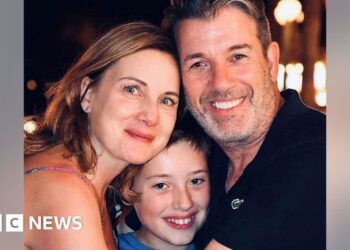Australia is loosening regulations so that general practitioners (GPs) can meet the growing demand for attention-deficit/hyperactivity disorder (ADHD) care. But some specialists are advising caution.
Earlier this year, the Western Australian government committed $1.3 million to training 65 GPs in ADHD management via a 13-hour online training module and a 6-month period of psychiatrist mentoring and peer learning.
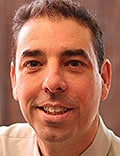
“I’m seeing it every day in my practice, with patients struggling to get a timely diagnosis and treatment for ADHD,” Sean Stevens, MD, chair of the Royal Australian College of General Practitioners (RACGP) ADHD Working Group in Western Australia, told Medscape Medical News.
“GPs are able to do this,” he said. “It’s a matter of ensuring that the training is appropriate, that GPs know where the thorny problems lie, where it’s appropriate to refer [to a specialist].”
New South Wales, South Australia, the Australian Capital Territory, and Tasmania are taking steps towards relaxing restrictions around ADHD management, while Queensland has permitted GPs to prescribe stimulants for children with ADHD since 2017. Victoria remains a holdout despite intensive lobbying from GPs, as does the Northern Territory.

“We’ve seen commitment from all sides of politics down here in Tasmania to reform the ADHD space,” Tim Jones, MD, chair of the RACGP Child and Young Person’s Health special interest group, told Medscape Medical News. “The details are still thin,” he said. “But we’re certainly excited to see what this could mean for communities in need where access has become such a challenge.”
Tasmania has no public services for adult patients with ADHD, and public pediatric services for children with ADHD have a 2-3 year wait time, said Jones. “If you can think about that missed opportunity for early intervention to support children, that’s pretty dire,” he said.
Most Australian states do not allow ADHD to be diagnosed or treated in the public health system, meaning that families must pay to see private specialists, usually psychiatrists or pediatricians. In 2023, a Senate inquiry found that ADHD services were inaccessible because of lengthy wait times and high costs. New clinics opened to meet the demand, sometimes charging as much as $3000 for an ADHD diagnosis.
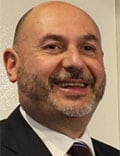
“Tens of thousands of people have called our help line, desperate for diagnosis and treatment options, and I know that most of the psychiatrists out there have got at least an 18-month waiting list,” Christopher Ouizeman, director of the ADHD Foundation, a not-for-profit patient advocacy group, told Medscape Medical News.
ADHD treatment should be available within the public health system and within primary care, said Ouizeman. However, “GPs can’t provide patients with two hours’ worth of care and only get paid for 15 minutes,” he said. “That’s just unfair and untenable.”
Specialists Voice Concerns
ADHD policy changes are underway in many states, but some specialists are nervous about the potential impacts and want greater involvement in the enactment of these changes.
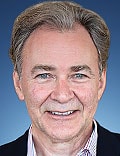
Some psychiatrists were concerned by the decision to expand the role of GPs in ADHD with what they considered insufficient consultation with specialists, Roger Paterson, MD, a psychiatrist based in Western Australia, a committee member of the Royal Australian and New Zealand College of Psychiatrists (RANZCP) ADHD Network, and a director of ADHD Western Australia, told Medscape Medical News. “Psychiatrists should be central to the whole ADHD process,” he said.
GPs have less experience in mental health than psychiatrists, who train for a minimum of 5 years, and allowing GPs to diagnose ADHD independently “adds a degree of uncertainty to the whole process,” said Paterson. “A select number of GPs with an interest in ADHD, and with adequate training through the RACGP, may well be helpful in areas of high unmet need,” he said.
Some specialists are worried that ADHD stimulant prescribing regulations could become lax, such as the case with medicinal cannabis, where a small number of GPs are now being investigated for issuing more than 10,000 prescriptions, said Paterson.
The reforms might not be necessary, some argue, since close to half of the psychiatrist workforce in Australia now has a special interest in ADHD. “The RANZCP ADHD Network has over 2000 members,” said Paterson.
Prescribing rates are also “getting closer and closer” to the actual prevalence rates of ADHD, he added. An estimated 8.2% of children under age 12 years and 2.5% of adults have ADHD in Australia. Up to 7% of children and 2.3% of adults are now being prescribed an ADHD medication.

“We’re all for innovations in this space, but you just want to be careful,” Astha Tomar, MD, president of RANZCP told Medscape Medical News. “You would think for something so big … the government would bring the stakeholders together,” she said. “It needs a whole-of-system approach, and not just a rule change here and there.”
Psychiatrists usually spend around 45 minutes assessing whether symptoms are caused by ADHD or other conditions — such as depression, posttraumatic stress disorder, or a neurodevelopmental disorder — and up to 12 months adjusting treatments for each patient. “ADHD assessment is not a 5-10-minute job,” said Tomar.
Stimulants, which make up the majority of ADHD prescriptions, remain tightly controlled. Schedule 8 medicines misuse entails risks for psychosis, fatal overdose, and diversion. “We have to make sure everybody stays safe,” said Tomar.

GPs can contribute meaningfully to care in ADHD, but “changes to clinical pathways must be carefully designed in partnership with specialists,” Niroshini Kennedy, MD, the president of the pediatrics and child health division of the Royal Australasian College of Physicians, told Medscape Medical News.
“Without important training, there are risks,” she said. “Without a comprehensive and nuanced assessment, there is a risk of misdiagnosis, inappropriate treatment, and harm to a child’s development.”
Queensland’s Experience
Some GPs in Queensland have started to set up clinics to manage children with ADHD, but they continue to “talk things through” and get supervision from pediatricians, Tim Warnock, MD, a pediatrician in Cairns and past president of the Australian Paediatric Society, told Medscape Medical News.
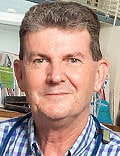
Warnock came out of retirement in 2023 because of workforce shortages. “I couldn’t transition dozens of patients to another pediatrician in Cairns,” because they were “absolutely swamped,” he said.
Given these bottlenecks, it’s useful for GPs to “try to get things done while they’re waiting for a pediatric appointment” and then arrange for a review by a specialist at a later stage, said Warnock.
“GPs are aware of their own limitations,” he said. “If GPs show the commitment and give the time to doing the assessments appropriately, they will probably run a good practice.”
Stevens, Jones, Ouizeman, Paterson,Tomar, and Kennedyreported having no relevant financial relationships. Warnockreceived support for attending conferences and giving talks from Shire, a pharmaceutical company and ADHD drug manufacturer now owned by Takeda.
Felicity Nelson is a freelance science journalist based in Sydney.
Source link : https://www.medscape.com/viewarticle/australian-gps-gain-expanded-role-treating-adhd-2025a1000lmn?src=rss
Author :
Publish date : 2025-08-14 20:19:00
Copyright for syndicated content belongs to the linked Source.





